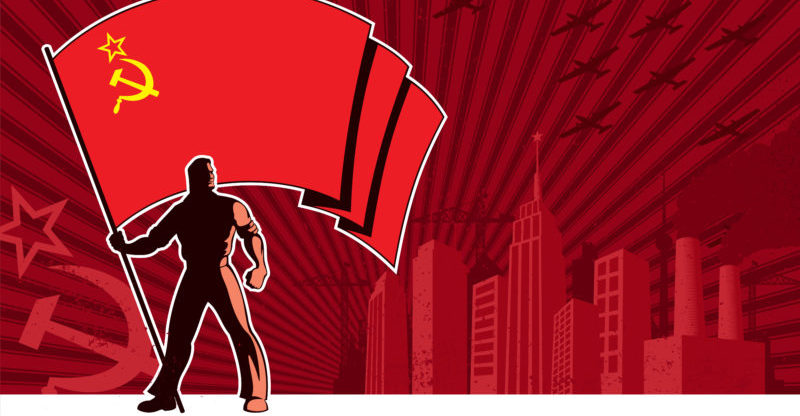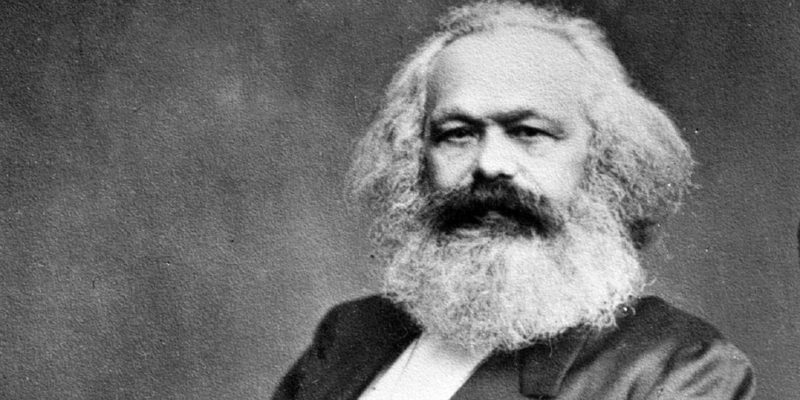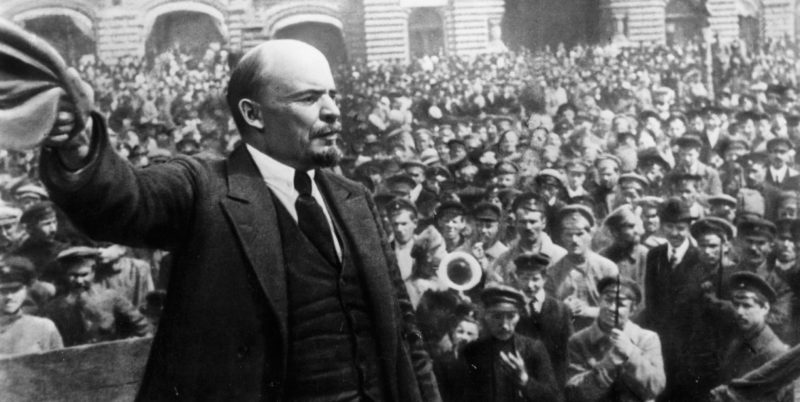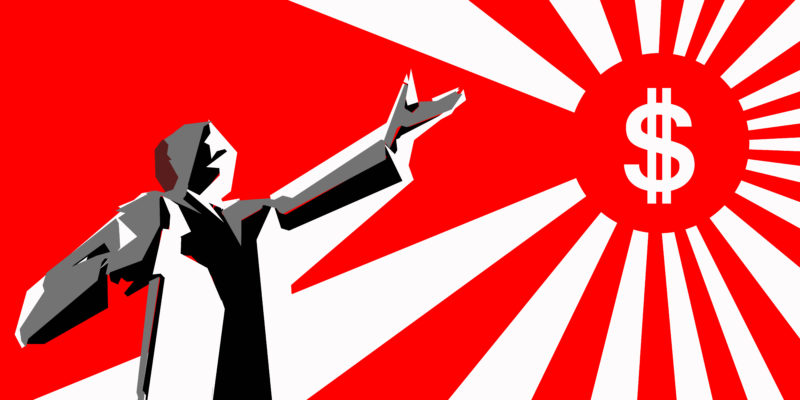We explain what communism is, what its characteristics and representatives are. In addition, its differences with socialism and more.
What is Communism?
Communism is a political ideology and social organization . It is a form of socialism (political ideology that emerged during the Industrial Revolution , elaborated by Karl Marx and Friedrich Engels).
As its main purpose, communism seeks to completely replace private property with public property and community control of the means of production. In addition, it aims to eliminate social classes to overthrow the bourgeois power (the minority of the population ) over the exploitation of the proletariat (the majority of the population).
Communism proposes, then, an equitable economic distribution , which is carried out with the control of the State in relation to wages, the means of production (factories and companies ), manufactured goods and private property. That is, a democratic distribution of wealth so that there are no social differences.
The truth is that currently no nation considered communist has managed to put these ideologies into practice in a pure way due to corruption. The representative of the national authority ends up abusing power instead of helping the society he serves (and refusing to return that power to the people).
characteristics of communism

The main characteristics of communism are:
- The exercise of power by a single party that does not tolerate opposition or different thoughts .
- The state-controlled economy , which manages public property, wages, and manufactured goods.
- The goods are property of the State and each person receives a part based on what they need.
- The idea of completely overthrowing the capitalist system and private property.
- The abolition of suffrage or the popular election of rulers.
- The exercise of communist power begins with a violent revolution of the workers against the middle and upper classes.
communism and socialism

Communism is a form of socialism and, despite both having certain differences between them, the adherence of the communists to the revolutionary socialist ideas of Karl Marx was what generated confusion and debate for so many years.
Marx tended to use the terms communism and socialism interchangeably . However, he identified two phases of communism that would mean the complete overthrow of capitalism (economic and social system based on private property and capital as a generator of wealth), a doctrine that socialism did not intend to overthrow completely.
According to Marx, communism would be, on the one hand, a system capable of ending the capitalist system and in which the working class would control the government and the economy. On the other, it would be a social system without divisions of class or government. Communism can be started through a violent revolution of workers against the middle and upper class, unlike socialism which is more flexible.
From these premises, proclaimed communist leaders arose who adopted the socialist ideas of Marx and distorted them according to their own interests. No proclaimed communist or socialist party has managed to maintain the pure ideas of Marx.
There are scholars who maintain that socialism is necessary to go from a capitalist system to a communist one , that is, to go from a system where the bourgeoisie has power over the proletariat, to one where the means of production do not fall to a bourgeois minority.
Some examples of countries considered socialist are: China, the Union of Soviet Socialist Republics (USSR), Cuba, North Korea, Denmark, Finland, Laos, Venezuela and Bolivia.
representatives of communism

Among the main representatives of communism are:
- Karl Marx (German). He was a philosopher, economist and revolutionary activist. He is considered the main representative of scientific socialism, after publishing the Communist Manifesto in 1848 together with Engels. There he shaped his political ideology that urged workers to unite and overthrow capitalist power.
- Friedrich Engels (German). He was a philosopher, sociologist, journalist and revolutionary activist who, despite belonging to a bourgeois family, promoted Marxist or socialist ideology together with Marx. Engels was a man of action and activism over the intellectual contributions that were also notable for the ideology.
- Vladimir Lenin (Russian). He was a politician, revolutionary, and theoretician who became the leader of the Russian Social Democratic Labor Party. Along with other Bolshevik leaders, such as Stalin and Trotsky, he adopted some communist ideas from Marx as he saw fit. After the 1917 revolution, she became the top leader of the USSR (Union of Soviet Socialist Republics).
- Leon Trotsky (Russian). He was a politician and revolutionary who, from a young age, participated in the underground opposition (the Workers' League of South Russia) against the autocratic regime of the tsars. He played a crucial role during the Soviet government of Lenin, who had appointed him as his successor. But in 1924, after Lenin's death, Stalin's ambition prevented Trotsky from exercising his power.
- Losif Stalin (Russian). He was a Soviet politician and dictator. After Lenin's death in 1924, Trotsky was to assume full control of the USSR. But Stalin led a revolution and took absolute power after establishing a dictatorship (1927-1953). Stalin established an intolerant and authoritarian regime . His idea was to further strengthen socialism in the USSR and spread it throughout the world. His abuse of power ended up becoming a tyranny .
- Mao Zedong (Chinese). He was a politician, top leader of the Communist Party of China and founder of the People's Republic of China. He was influenced by Marxism and Leninism, which he adapted to his convenience. He exerted great influence on the peasants who formed a key sector to carry out the revolution.
Differences between communism and capitalism

- The role of the State
- For communism. In the absence of private property, the State must be in charge (in the best of cases) of the administration , distribution of the means of production and employment so that all inhabitants live in equal conditions. The state is part of the superstructure that communism speaks of.
- For capitalism. The State is an entity that regulates economic activity and influences it as necessary. There are more influential States and others that are just regulators of basic norms, but the figure of the State is present in all capitalist regimes.
- Private ownership of the means of production
- For communism. For Marx, a person can have personal property (a car, a house, etc.) but there can be no private ownership of the means of production, that is, factories or companies must be in the hands of the State and at the service of the proletariat.
- For capitalism. Private ownership of the means of production is in the hands of their owners.
- Social classes
- For communism. There must be a single social class: the worker or worker.
- For capitalism. There are two social classes:
- The capitalist or owner of goods and means of production (is the one who receives the highest profit).
- The proletariat, lacking capital, which only has its labor power .
- Currency
- For communism. The workers do not receive a payment for their work but, by means of a previous agreement, they receive what they need.
- For capitalism. The workers receive a negligible payment, and the greater profit is retained by the owner of the factory or company (theory of surplus value).
Examples of communism
Currently there are only four countries with a communist regime: Cuba, China, North Korea and Laos.
Throughout history , many countries established communism:
- Albanian
- Grenade
- East Germany
- Hungary
- Angola
- Mongolia
- Benin
- Mozambique
- Bulgaria
- Poland
- Cambodia
- Romania
- Czechoslovakia
- Somalia
- China
- Soviet Union
- Congo-Brazzaville
- USSR
- North Korea
- South Yemen
- Cuba
- Yugoslavia
- Ethiopia
Veronica is a culture reporter at Collaborative Research Group, where she writes about food, fitness, weird stuff on the internet, and, well, just about anything else. She has also covered technology news and has a penchant for smartphone stories. .
Leave a reply
Your email address will not be published. Required fields are marked *Recent post

Sport: What Is It, Types, Risks, Features, Characteristics and Examples

Dogs: Emergence, Features, Characteristics, Feeding and Breeds

Story: Definition, Elements, Structure, Features and Characteristics

